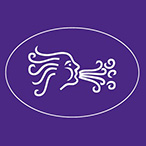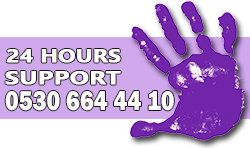Who are we?
We are women who have recognized, questioned, and started to transform the violence in their lives and their traditional statuses. We are sharing our awareness with other women so we can all challenge the norms and redefine our roles.
How we started?
Attacks, clashes, arrests, torture, and death have become regular news in all of Turkey, Eastern and Southeastern Anatolia in particular, since 1984.
Thousands have been victimized by this violence. Thinking about the violence that surrounds us, we started asking questions. Who were these people for whom killing, beating, hanging, stabbing, and raping others came so easily? How were they raised? How did this violence become so normal?
These questions directed our attention to homes. Homes were the process of the normalization of violence started. We were all survivors of ongoing violence against women, which was prevalent and intense. Following this recognition and questioning, the thought of starting a women’s movement was born in 1994. KAMER (Women's Center Education Production Consultation and Solidarity Foundation) was founded in 1997 following a preparatory period and a public opinion survey that was conducted in 1996.
Where we are?
While KAMER was originally established to work in Diyarbakir and its surroundings, it started the “Regional Expansion for Women’s Human Rights” Project upon demands of the women in the region. This functioned as a pilot project and allowed us toshare knowledge and experiences to develop the method that would be used for organizational expansion.
“An Opportunity for Every Woman” Project was launched in 2004 to open women centers that would work for women’s human rights in all 23 provinces of Eastern and Southeastern Anatolia. Our work to combat violence and discrimination against women is still continuing in these 23 provinces.
KAMER Foundation has still been organized in 23 provinces of Southeast and Eastern Anatolia.
Our goal
To identify local practices of the sexist system that harm women and children, to develop alternatives, and enable their implementation.
Our principles
• To be on the side of human rights and “women’s human rights”
• To be independent from all political organizations, non-governmental organizations, individuals, agencies and institutes
• To reject all forms of discrimination
• To reject all forms of violence
• To reject structural hierarchy without trivializing knowledge and experience
• To support sharing and solidarity
• To think globally while working locally
Practices conducted
1. Awareness Practices for Women’s Human Rights
These are the practices that are conducted through various methods to ensure women and men to realize, question, develop resistance and methods on their persistent status within the frame of traditional rules. The methods are;
I. Awareness workshops
II. Hall meetings
III. House visits
2. Emergency Support Program
• To meet initial and immediate needs of women that require support in order to get rid of the violence they have been exposed to. To ensure they obtain psychological and legal support they requested.
• To support possible victims of a murder that may be committed in the name of honor.
In the applications of women that may be the victim of a possible murder in the name of honor;
• Each woman’s own story and environment are separately evaluated, support is provided to the women who are under the threat of a possible murder and their life safety is ensured.
• On the other hand, sensitivity and permanent methods are tried to be developed on the issue.
3. Women’s Entrepreneurship
To contribute empowerment of women who have questioned their traditional status and endeavor to change it after participating awareness group workshops or receiving support through Emergency Support Hotline.
4. Early Childhood Education
To develop and ensure practicability of an alternative education method that is free from violence, does not comprise gender discrimination and encourages learning through experience and participation for early childhood through the practices conducted in the name of “Women and Children will Change the World”.
5. Support to Refugee Women and Children
Recognizing that every refugee should have the same rights and opportunities as we do, separate programs are conducted for refugee women and children where their participation to the ongoing practices is ensured at the same time.
Efforts are given both to be an intermediary for humanitarian aid and to ensure the use of their rights.
Lessons learned during the practices;
• Women rights are human rights.
• Sexism and violence against women is not an issue that is specific to the East of the world or of Turkey, ethnic identity or a religious group. Women all around the world are exposed to various forms of discrimination and violence.
• Women living in some regions may be exposed to violence preponderantly and frequently due to war, migration and poverty.
• Violence is not women’s fate or a heritage that descent from mother to daughter.
• Violence is not an issue that belongs to an ethnical group, a belief group or a country.
• Violence is not an issue of a family and not to be solved within family.
• Violence is not an issue of only poor or uneducated women.
• Violence is a social issue that can be eliminated through cooperation of all components of the society.
• We should have awareness and create awareness on violence that is ongoing for thousands of years.
• If we can increase in number by disseminating our knowledge and experience, we can overcome violence.
Once we were a drop, we became an ocean!



 Click to read the KAMERs leaflet
Click to read the KAMERs leaflet